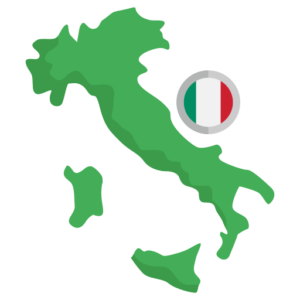- Casino News
- Industry News
Italy Targets Illegal Gambling Through Cyber Controls


Italy Targets Illegal Gambling Through Cyber Controls


Italy is setting the stage for another shift in its gambling regulatory framework, this time turning to cybersecurity as a tool for limiting unlicensed activity. Provisions within the new Budget Law outline a plan that would oblige businesses offering public internet access to install blocking software, cutting off connections to unauthorized gambling sites.
The proposal, spearheaded by the Ministry of Economy and Finance (MEF), entrusts the Customs and Monopolies Agency (ADM) and the state-owned IT provider SOGEI with developing the technological system. Once implemented, the software would form part of the country’s strategy to reduce the visibility of offshore and unlicensed platforms in spaces where public internet use is common, such as cafés and kiosks.
This initiative is closely linked to the government’s recent decision to grant new online gambling licences, each priced at €7m. Licensed operators have invested heavily in the regulated framework, and the government views stronger digital barriers against unlicensed sites as necessary protection for those investments. Officials argue that without such measures, illegal operators could continue to undercut the regulated sector, eroding both state revenues and consumer protections.
Italy’s struggle against unlicensed operators has persisted despite a mature regulatory framework. Offshore platforms often attract customers with promises of greater choice or fewer restrictions, but regulators contend that such sites leave players without safeguards or guarantees. By focusing on digital prevention rather than physical restrictions, policymakers appear to be adjusting their approach to the changing realities of online gambling.
Internationally, debates around the effectiveness of blocking measures are ongoing. While some jurisdictions have reported reductions in access to unlicensed platforms after adopting similar approaches, others have found that motivated users often find alternative pathways. Italy’s attempt to create a state-managed software solution suggests a desire to centralize control and reduce loopholes. The ADM and SOGEI will therefore carry significant responsibility in ensuring the system is practical, efficient, and adaptable to evolving online practices.
If successful, Italy’s cybersecurity-based system could become an influential model in Europe, where many regulators face similar challenges. However, its impact will not be measured solely by its technical performance but also by its ability to foster compliance among businesses and to convince consumers to remain within the licensed system. The coming months will reveal whether this legislative and technological shift can effectively reshape the boundaries of Italy’s gambling market.
Best Online Casinos
10 Recommended Online Brands On CasinoLandia That Will Enhance Your Gaming Experience
No results were found!








